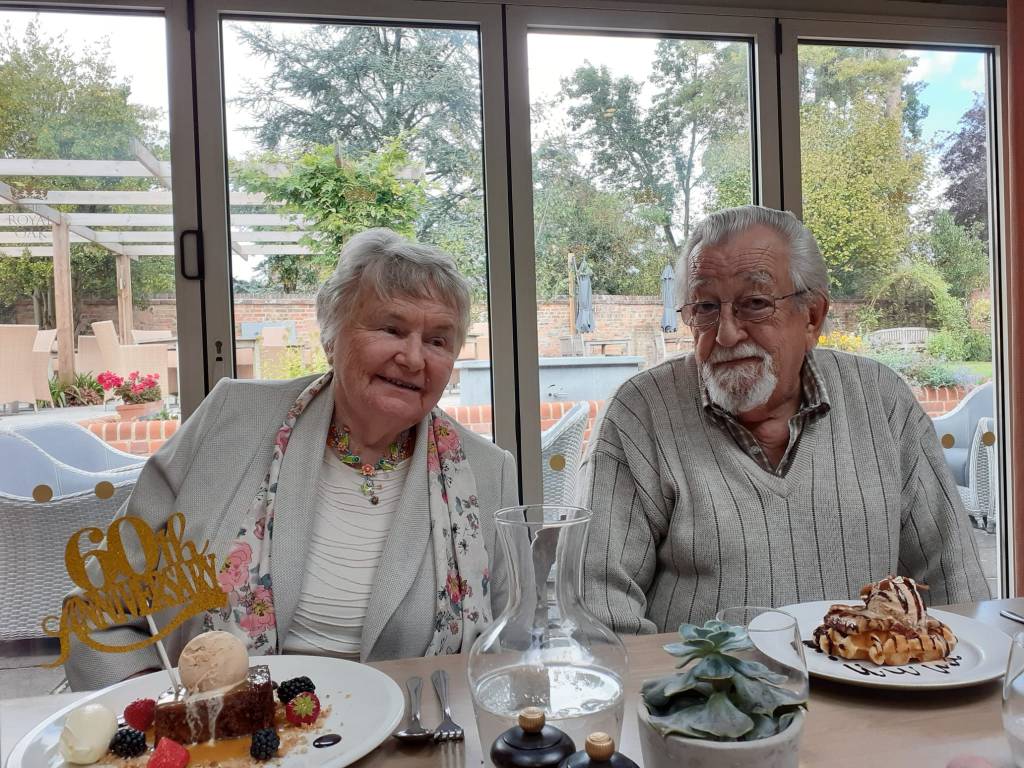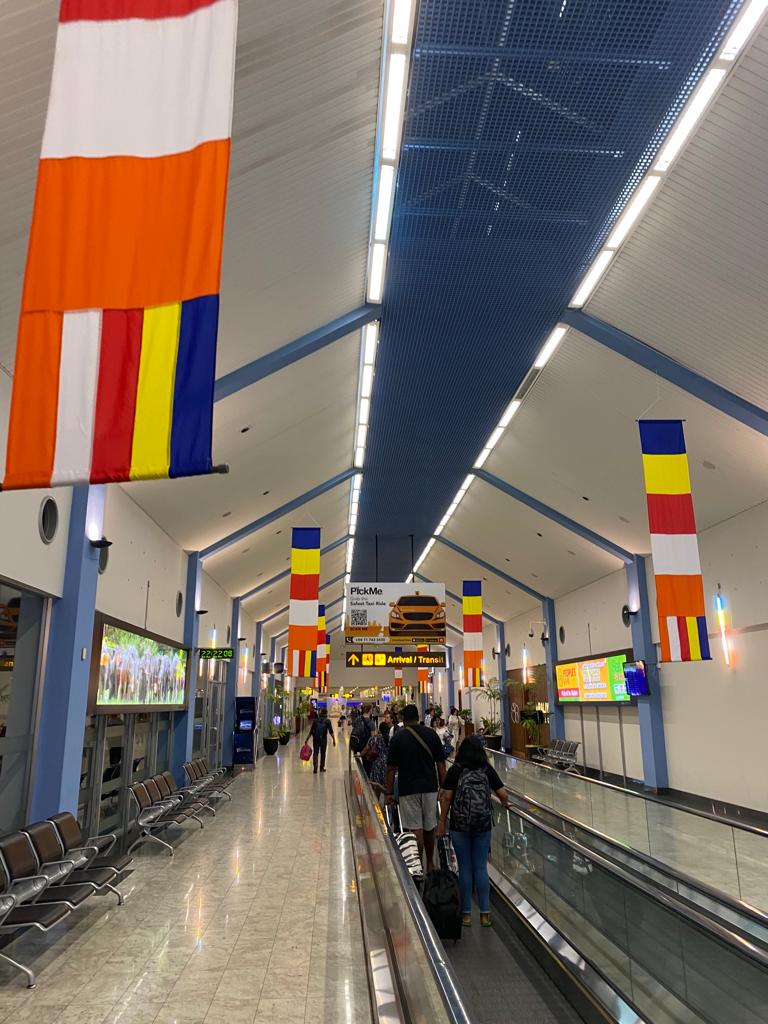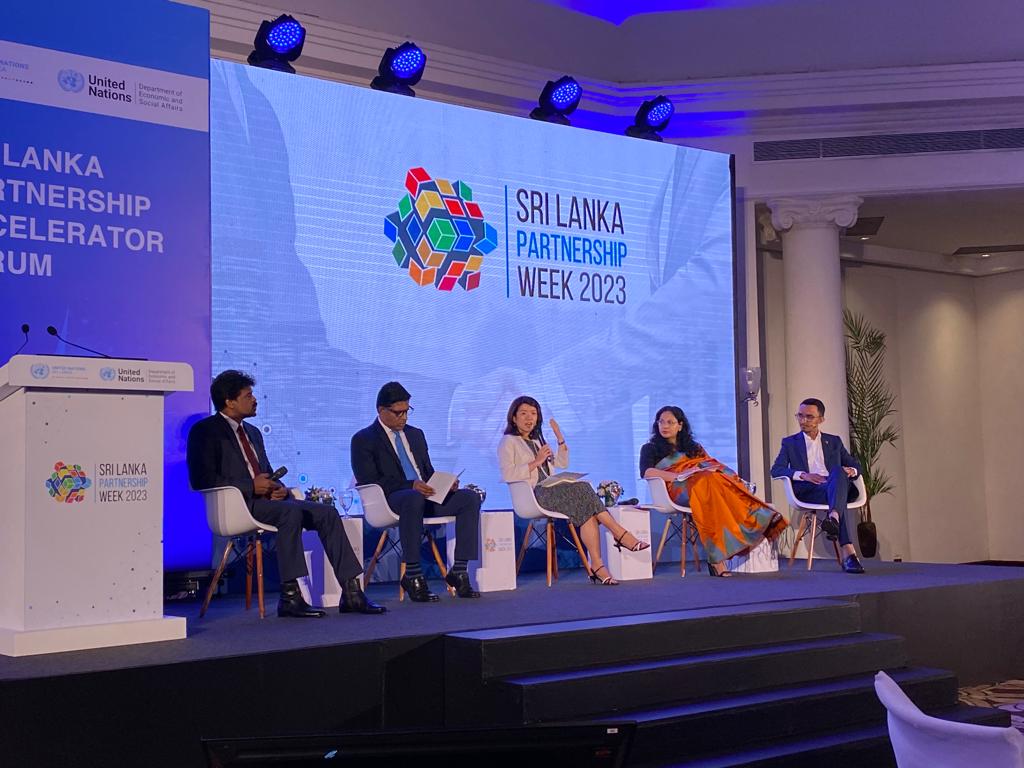At the end of my uncle’s funeral service in September, the final music played was the “Ying Tong Song”, written by Spike Milligan and performed by The Goons. Here’s a link for anyone unfamiliar with this seminal piece.
I doubt any crematorium in the UK would, prior to that, have received a request for a song whose refrain includes the lines: “Ying tong ying tong, Ying tong iddle I po.” However, our congregation replaced shedding tears of sadness with wiping away tears of laughter as the song continued.
Shuffling past my uncle’s coffin, we each picked up a packet of digestive biscuits, his favourite, and held our gaze one last time in his direction.
Outside, we gathered by the bouquets of flowers, proudly wearing our paper rose buttonholes, fashioned out of Goon Show scripts, before coalescing at the nearby golf club, to stand in the early autumn sunshine staring up, as our cigarette smoke calmly spiraled into the sky.
Brian Edwin Copleston, ‘Nunky B’ to us all, was my mother’s eldest brother.
Their middle sibling, my uncle John, passed away almost 15 years ago, at too young an age of 68, and just five years after his parents, my Nana and Grandad, had also left us. Nunky B would have been 87 years old today.


Born on Guy Fawkes night, a few years before the outbreak of World War II, Nunky B was first and foremost an entertainer. Drawing on Goon Show humour during his funeral was the perfect send-off.
The Ying Tong Song that day came on the heels of my cousin Pip’s heart-warming eulogy for her Dad, a man who was never short of a one-liner himself (typically followed by prolonged, stifled giggles) all the way into his final days.
I wonder, now, what harnessed Brian’s constant energy to create fun and laughter?
Going through adolescence at the beginning of the 1960’s (my uncle’s formative years were spent growing up initially with the backdrop of war, and then through the austerity of 1950s Britain, followed by a period of National Service in the RAF spent in part in Cyprus) it is possible he was one of the last generations of young people to experience “civic” societal norms – the type where children, it was felt, “should be seen and not heard.”
My own grandparents were very definitely brought up during sterner times, and probably regurgitated what they had been taught back to their kids, albeit with softening delivery.
Fortunately, my baby-boomer parents modelled a new style of parenting that seemed to take hold in the early 70s, a pivot away from dictatorial etiquette towards, instead, allowing youngsters more of a voice. My brother and I were spoilt, compared to how we would have fared had we been born twenty years earlier.
Whether the various shifting societal changes that were underway, as my uncle reached adulthood and beyond, helped inspire and shape his humour, is perhaps less important now. It’s possible the “roaring ’60s,” with its new wave of music, fashion, art, anarchy, and general substance experimentations, whet the appetite of a whole generation – a welcome distraction from the challenges of the previous decade.
Certainly, in response more generally to the often-impossible bleakness and pain that many people endure, comedy has, generations over, proven to be a worthy antidote.


The Goon Show itself ran throughout much of the 1950s, amassing some two million radio listeners at its peak, with episodes airing across the globe. Cult-like in the end, the absurdity of Goon humour, with its free-falling satirical sketches ridiculing all aspects of British society had, until then, never been experienced in that format. The Goons established a unique genre of comedy, reprised in 1972 as part of the BBC’s 50th anniversary, when fans got to tune in one last time to The Last Goon Show of All.
Whatever lit the touch paper and sparked Nunky B’s wit when he was younger, it stuck for the rest of his life. As he and his wife, Angela, started their family, they ran a hotel for a number of years down in Porlock, Somerset, hosting weekends of jocularity with my parents, akin to Fawlty Towers episodes with Nunky B playing the role of consummate host.
One Christmas, my parents were roped in to help out in the dining room, relying mostly on the art of improvisation. If a diner requested, say, a ham and cheese sandwich or a pasty, someone would be dispatched to the local shop to buy the necessary ingredients, before muddling a plate, some cutlery and a sprig of parsley together, and serving it up with aplomb.
My Dad once received a request from a patron for a glass of “medium” white wine (because apparently the Sauterne the night before was “too sweet.”) On enquiring whether they had any medium white available in the bar, Nunky B immediately set to and mixed half a glass of dry into half a glass of sweet wine and declared “that’s yer medium”. The resulting beverage was delivered to the guest, who swished a small mouthful of the concoction like a true sommelier, before declaring himself totally satisfied.
My uncle himself hadn’t drunk alcohol for a long time. I recall clearly his disdain, during the earlier days of his abstinence, about how he’d woken up, the morning after drinking non-alcoholic Kaliber lager the night before and complained at having the “worst hangover ever”.
As kids, we were always excited when we knew Nunky B might be coming to visit. Whether it was for a Boxing Day gathering, with Brian wearing the infamous orange tights (traditionally passed on each year to unsuspecting family members) or him cracking jokes about “catching her teeth” as my Nana blew out her birthday candles one year – my uncle’s quick-wittedness is ingrained in my memory of those occasions, under the canopy of his cigarillo smoke and infused with his contagious chuckling.


He truly was a humble man, taking genuine interest in me and my brother’s upbringing – asking about our school subjects, our sports achievements and, in later years, the places we’d visited, and our own families.
He doted on his own children, Pippa and Nick, and he and my aunt celebrated their 60th wedding anniversary in 2020.

In more recent times, during the protracted months of lockdown, we would organize weekly family quizzes on Zoom. Brian’s health was sliding a bit during this period, however he was always on camera, and we’d usually have to halt proceedings periodically due to more bouts of laughing.
Encountering his own ups and downs, over his many years, Nunky B’s sense of humour, coupled with his simple adoration of our family – we are small, but perfectly formed – was an inspiration to us all.
As a lifelong smoker, Nunky B was somewhat of a walking miracle when I saw him this summer. Although not in the best of health, and reluctantly “off the darts”, he was in good spirits and still managed to crease us all up, openly sharing, shall we say, a bit too much about some of his more intimate medical issues.
We exchanged our last words and hugged it out that day. Whilst, physically, his movement was compromised, Brian somehow managed to make it to the front door to wave us off, as our car pulled away.
At the time, waving back, I wasn’t sure how he’d managed to get all the way from his armchair to the front porch so quickly. But, there he was, framed in the doorway, wearing his crumpled brown pullover and moccasins, his arm aloft, beaming.











